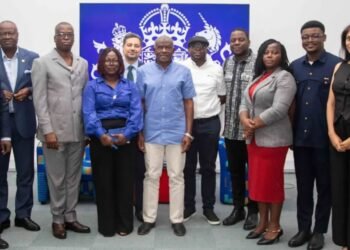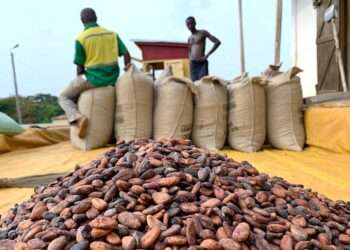The 34th session of the FAO Committee on Fisheries (COFI), which is the only global inter-governmental forum where FAO Members meet to review and consider the issues and challenges related to fisheries and aquaculture, has begun virtually for the first time and is expected to end on February 5, 2021.
Opening the 34th session yesterday, the Director-General of the Food and Agriculture Organization of the United Nations (FAO), QU Dongyu mentioned that fisheries and aquaculture are of critical importance for global agri-food systems transformation as well as recovering from the COVID-19 crisis.
In his remarks, Qu noted that the COVID-19 pandemic has affected the fisheries and aquaculture sector through changing consumer demands, market access and logistical problems related to transportation and border restrictions. He also highlighted that fisheries and aquaculture are essential for the world economy to build back better from the COVID-19 crisis.
“The potential of a modern aquaculture to grow and feed the world is extraordinary,” Qu said, noting that 10 percent of the world’s population relies on the fisheries and aquaculture sector for their livelihoods, mostly small producers that need support.“
This year COFI 34 is celebrating the 25th Anniversary of the Code of Conduct for Responsible Fisheries, a landmark instrument endorsed by FAO member states, that has been guiding efforts towards sustainable fisheries and aquaculture around the world.
The anniversary of the Code comes at a challenging time as pollution, climate change, biodiversity loss, unregulated practices and increased competition for the use of marine and coastal areas are threatening aquatic ecosystems and their resources. FAO estimates that 34.2 percent of all marine fish stocks are fished beyond biological sustainable limits, a threefold increase since monitoring started in 1974.
In a video-taped keynote address, the Prime Minister of Norway, Erna Solberg, stressed the need for countries and organizations to work together to find a balance between fisheries production and protection of the oceans. She noted FAO’s important role in this regard. The Prime Minister also stressed that the Code of Conduct had contributed to a healthier, more robust blue economy by urging implementation of standards for responsible and sustainable management practices.
FAO’s State of World Fisheries and Aquaculture (SOFIA), issued in June 2020, estimates that total fish production is set to increase to 204 million tonnes in 2030, up 15 percent from 2018, with aquaculture’s share growing from its current 46 percent. Aquaculture has been the fastest expanding food production sector globally for the last 50 years, growing at an average of 5.3 percent per year since the turn of the century.
Against this background, COFI has endorsed the first-ever COFI Declaration for Sustainable Fisheries and Aquaculture. The Declaration aims to outline a global vision for the transformation of blue ecosystems, 25 years after the adoption of the Code of Conduct.
The Director-General said the Declaration will encourage the collective drive to build inclusive, resilient and sustainable agri-food systems in a fast-changing industry to meet the UN 2030 Sustainable Development Goals.
“Much has changed over these past 25 years. We need to ensure that our aquatic food systems are resilient and meet the growing demand for nutritious, safe and affordable food, while maintaining sustainable ecosystems, economies and societies that leave no one behind.”

The Director-General invited FAO Members to take advantage of COFI 34 to discuss how the production, processing, trade and consumption of aquatic foods can be transformed as part of a broader agri-food systems transformation, making them more sustainable, resilient and inclusive.
“We know that land alone will not feed us with abundant quantity and food diversity – we need blue transformation to secure blue food production,” he added, stressing the importance of modernizing traditional fisher culture with innovative approaches and digital technologies.
“Combining fisheries with tourism and educational activities is a way of keeping the cultural heritage alive and creating new values and new job opportunities”
QU Dongyu, FAO’s Director- General
The Director-General also pointed out the benefits of fish in diets, especially for pregnant women, children and in combatting all forms of malnutrition, stressing that fish should be promoted in food and nutrition strategies across the world.
“The fisheries and aquaculture sector has a crucial contribution to make within the Four Betters: Better Production, Better Nutrition, Better Environment and Better Life.”
QU Dongyu, FAO’s Director- General
COFI 34 will also review the SOFIA report, the role of small-scale fisheries and the livelihoods of coastal and inland fisheries communities, illegal fishing and fish operations at sea, as well as the critical role of women in the post-harvest and service sector.
COVID-19 and Global Fisheries & Aquaculture Industry
According to FAO’s report, The impact of COVID-19 on fisheries and aquaculture food systems, global fisheries and aquaculture have been hard hit by the COVID-19 pandemic and could face further disruption in 2021 as lockdowns affect supply and demand across the sector. While food itself is not responsible for the transmission of COVID-19 to people, the report stressed that every stage of the fisheries and aquaculture supply chain is susceptible to being disrupted or stopped by containment restrictions.
“The pandemic has caused widespread upheaval in fisheries and aquaculture as production has been disrupted, supply chains have been interrupted and consumer spending restricted by various lockdowns. Containment measures have provoked far-reaching changes, many of which are likely to persist in the long term”
Maria Helena Semedo, FAO Deputy Director-General
Before the pandemic, the sector was on a general upwards trend. In 2018, global fisheries and aquaculture production (excluding aquatic plants) reached an all-time record of nearly 179 million tonnes. Overall capture fisheries, with 96.4 million tonnes represented 54 percent of the total, while aquaculture, with 82.1 million tonnes, accounted for 46 percent. And over the last decades, fish consumption has grown significantly to an average of over 20 kilos per person.
The FAO report indicated that in aquaculture there is growing evidence that unsold production will result in increasing levels of live fish stocks, creating higher costs for feeding as well as greater number of fish mortalities. Sectors with longer production cycles, such as salmon, cannot adjust rapidly to the demand shifts.
Global catches from wild fisheries are also expected to have declined slightly in 2020, as, overall, there has been a reduced fishing effort due to COVID‑19-related restrictions on fishing vessel crews and poor market conditions. As a result of Covid-19, consumer preferences have shifted. While demand for fresh fish has waned, consumer demand for packaged and frozen products has grown as households look to stock up on non-perishable food.
FAO has called for disruptive border restriction measures on trade in food to be minimized for food security. The report called for sectoral and regional organizations to work together in order to manage fisheries and aquaculture during the pandemic, with measures that support job protection and ensure a fast recovery of the sector without compromising sustainability.
Read also: Fisheries Commission/EJF launches a mobile application for tracking illegal fishing





















